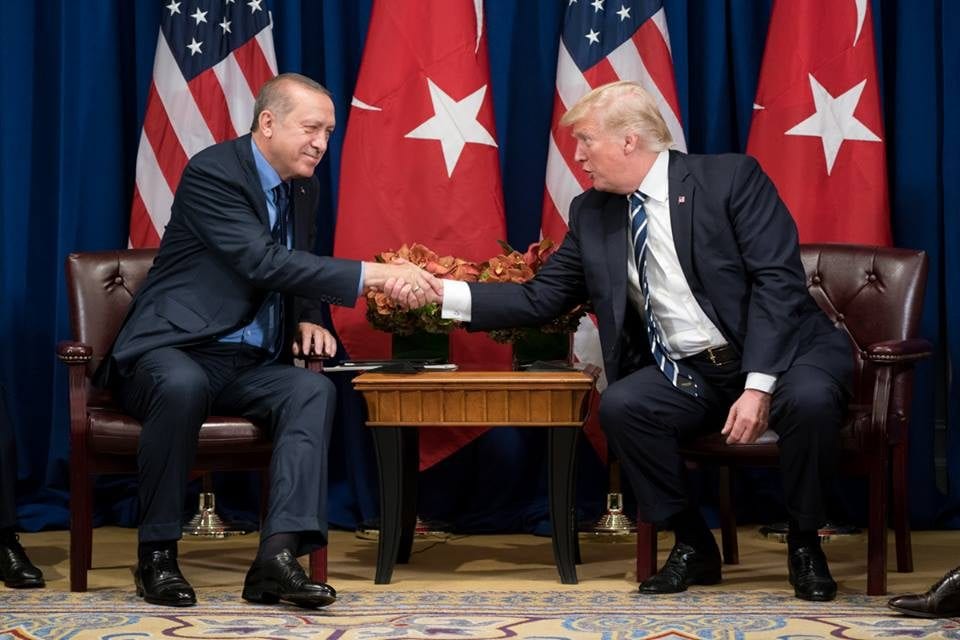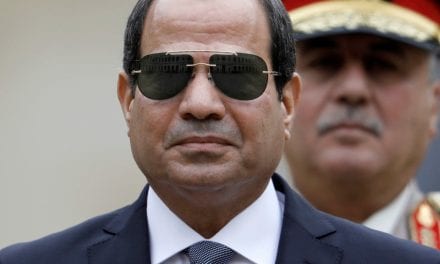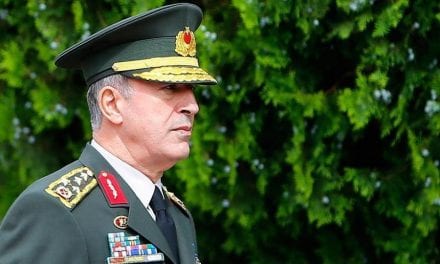By Ilhan Tanir, Ahval
Two diverging winds of opposition are blowing inside Turkey’s ruling Justice and Development Party (AKP), with each said to stem from veteran politicians who helped guide the party to success in years past.
Rumours that side-lined officials of the ruling party are preparing establish a party to rival the AKP’s dominance of the religious conservative demographic have been a near-constant in recent years, and have so far proven unfounded.
However, recent controversies over the government’s weak handling of Turkey’s ailing economy, and concerns about its unwillingness to accept defeat in the Istanbul mayoral election, have lent far more credence to the rumours this time around.
This time, there is credible talk that AKP veterans are on the verge of establishing two separate breakaway parties, and President Recep Tayyip Erdoğan may be seeking a way to counter them by easing tensions with Turkey’s old allies in the United States.
Ahmet Davutoğlu, a former prime minister, foreign minister, and chairman of the AKP, has been the highest-profile party stalwart to express vocal criticism so far.
Davutoğlu accused Erdoğan’s party (of which he’s still a member) of responsibility for the current economic crisis and the disappointing results in the March 31 local elections in a 15-page “manifesto” published on his Facebook page on April 22. Erdoğan reacted strongly but indirectly to this criticism.
The second significant wave of intra-party criticism is said to be forming around Ali Babacan, former deputy prime minister for economic and financial affairs and current MP, who is like Davutoğlu rumoured to be weighing up plans to launch a new party. Babacan has not yet clearly voiced his criticism, though it is telling that he has not done anything to dispel the rumours.
Babacan is said to be on side with Abdullah Gül, another AKP veteran who co-founded the party and served as its prime minister and president.
The pair are not seen as willing to work with Davutoğlu, but they are reportedly pleased with the role he is playing in the name of establishing a new party and in making noise about the increased level of dissatisfaction.
Babacan is expected to hammer home his message on the economy, which has been hit by a series of major setbacks since last year. The Northwestern University graduate is said to have even closer links to European financial circles than to those from the United States, and Turkish media reported a recent visit to Britain to meet with investors.
However, he is known to also have liaisons taking the pulse in Washington. During the most recent American-Turkish Council (ATC) summit at the Trump Hotel, some Washington insiders told Ahval that Babacan had several contacts taking the pulse in the capital.
Meanwhile, Davutoğlu’s inner-party opposition may be playing a smarter game this time. Even in its alliance with the far-right Nationalist Movement Party, the AKP stands with just 51.7 percent of the vote. The AKP’s share of the vote alone is estimated to be around 44 percent.
In the event that a new party can take just 5 percent of the vote, it won’t be possible for Erdoğan to be elected in the 2023 election or in an earlier election.
Interest in the development of new parties is high across Turkish media and social media.
For now, no concrete steps have been taken in creating a new party. The most visible public indicators that an opposition movement is gaining momentum have come from Davutoğlu’s manifesto, tweets interpreted as rebukes to the AKP leadership by Gül, and messages and visits to various Anatolian cities made by leading AKP opposition figures such as Selçuk Özdağ.
The fact that these figures have not denied the claims of a new party has greatly increased their credibility.
Erdoğan has given a series of speeches designed to boost morale around the Turkish economy, which is in dire need of foreign investment to stay afloat.
However, Erdoğan’s recent actions are thought to have only increased the pressure on the economy. The president has pushed to have the Istanbul mayoral election cancelled and placed pressure on the central bank’s interest rate policies, and these moves have raised fears among foreign investors about Turkey’s long-running divergence from a rule of law and the lack of independence for important institutions.
Under such strained circumstances for the AKP, news of a possible visit by U.S. President Donald Trump has been seen as a lifesaver by Turkish ruling party officials. Pro-AKP media was the first to report on the rumours that Trump will visit this summer, before Turkish Foreign Minister Mevlut Çavuşoğlu said a visit by the U.S. president would be “wide ranging” on Thursday.
The White House has made no announcement to either confirm or deny the visit.
However, with delivery of the Russian S-400 air defence system, which U.S. officials and lawmakers vehemently oppose, also scheduled this summer, Trump’s rumoured July visit would be a very complicated matter indeed.
Put simply, either the S-400 will not come, or Trump’s visit will not happen. Turkey’s bureaucracy is skilful enough to find excuses to postpone the delivery of the S-400, but for Trump to visit Turkey, even “postponement” may not be enough.
Nothing less than a complete cancellation would satisfy Congress and the Pentagon.
For Trump, if Turkey can be convinced to cancel the S-400 deal, which Erdoğan has repeatedly said was final, and to accept a compromise in the countries’ problematic situation in Syria, this may well provide good enough reason to accept the Turkish invitation.
By summer, there will be 16 months left to the 2020 U.S. elections, and a claim by Trump to have single-handedly persuaded Turkey to stay in NATO and cancel the S-400 purchase surely provide the president with the foreign policy success story he has sought, without success, in North Korea and Iran.
Meanwhile, given the current, difficult circumstances, Trump’s high-profile visit could also be a bonus for Erdoğan to convince foreign investors and Western financial markets of Turkey’s continued relevance. But it would also serve as a rejoinder to Babacan, who is well-known and well-liked in western circles.
Thus, while Trump is attempting to designate Muslim Brotherhood, which has been an inspiration for Turkey’s Islamists including Erdoğan, as a terrorist organisation, the AKP administration has foregone the usual blunt criticism of those that take an opposition role.
Instead, it is doing everything it can to persuade Trump to accept its invitation.



















